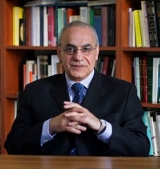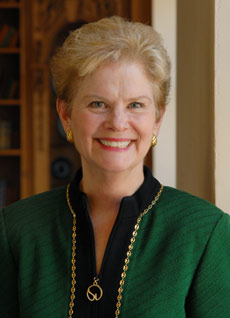Save the Date – Friday, November 22
By Emran El-Badawi
Last December IQSA announced its first annual meeting to be held in Baltimore this November. We are now happy to share with you the details of our meeting’s exciting first day. Those planning to attend should keep in mind that the first day of our meeting will be on Friday, November 22 (i.e. one day before the start of both AAR and SBL, which begin on November 23).
Our program on Friday will include a panel on Qur’an manuscripts as well as the much anticipated keynote lecture by Prof. Aziz al-Azmeh, and an insightful response from Prof. Jane Dammen McAuliffe. A reception with food and refreshments will immediately follow. See below for a more detailed schedule, and look for further details concerning the rest of our Baltimore meeting soon.
November 22, 2013 (FRIDAY)
Panel – Qur’an Manuscripts: Text, Object and Usage
1:30 p.m. to 4:00 p.m.
Gabriel Said Reynolds, University of Notre Dame, Chair
Keith Small, London School of Theology
- Gems of the Bodleian: Qur’an Manuscripts at Oxford University
Simon Rettig, Freer Gallery of Art and Arthur M. Sackler Gallery–Smithsonian Institution
- Codicology versus History of Art? Rethinking the Visual Study of Qur’an Manuscripts
Alasdair Watson, Bodleian Libraries
- The King’s Mushafs: A Glimpse at Some of the Qur’ans from Tīpū Sulṭān’s Royal Library
Asma Hilali, Institute of Ismaili Studies
- The manuscript 27.1 DAM: Sacred words and words about the sacred
Keynote Lecture – Implausibility and Probability in Studies of Qur’anic Origins
4:30 p.m. to 5:45 p.m.
Emran El-Badawi, University of Houston, Introduction
Aziz al-Azmeh, Central European University, Keynote Speaker
Implausibility and Probability in Studies of Qur’anic Origins: On the assumption that an answer is only as good as the question posed, the lecture will address trends in the present state of studies of the origins and composition of the received Qur’anic text, by challenging questionable assumptions and exploring promising avenues for future research. It will consider certain physical—textual and codicological—features of the Paleo-Muslim Qur’anic text and a number of historical reports, in order to propose a model for the process of its constitution, composition and circulation prior to and up to the constitution of the literary canon. In so doing, the lecture will adopt a perspective rather more attentive to historical and socio-linguistic processes than to purely philological consideration.
Jame Dammen McAuliffe, Bryn Mawr College, Respondent
Reception – Details TBA
Aziz al-Azmeh is CEU University Professor in the School of Historical and Interdisciplinary Studies, Central European University, Budapest. He has been a long-term fellow at the Institute for Advanced Study, Berlin, and a fellow at: the Swedish Collegium for Advanced Studies, Uppsala; the Collegium Budapest; the Rockefeller Center for Scholars, Bellagio; and the Maison des Sciences de l’Homme, Paris. He was a visiting professor at Columbia, Yale, Georgetown, and the University of California, Berkeley. Among his books in English are Ibn Khaldun (1982), Arabic Thought and Islamic Societies (1986), Muslim Kingship (1997), The Times of History (2007), A History of Islam in Late Antiquity: Allah and His People (Cambridge University Press, forthcoming) and Arabic Literary Sources and the Religious and Ethnographic History of the Arabs in Late Antiquity (Harrassowitz, forthcoming).
Jane Dammen McAuliffe is a scholar of the Qur’an and Muslim-Christian relations who served as President of Bryn Mawr College (2008-2013) and Dean of Arts and Sciences at Georgetown University (1999-2008). Her publications include Qur’anic Christians: An Analysis of Classical and Modern Exegesis (Cambridge University Press, 1991), Abbasid Authority Affirmed (SUNY Press, 1995), With Reverence for the Word (Oxford University Press, 2002; paperback 2010), the six-volume Encyclopaedia of the Qur’an (Brill Publishers, 2001-2006), The Cambridge Companion to the Qur’an (Cambridge University Press, 2006) and the forthcoming Norton Anthology of World Religions and Norton Critical Edition of the Qur’an.
McAuliffe’s research has been supported by fellowships from the Guggenheim Foundation, the National Endowment for the Humanities, the Rockefeller Foundation, and the Mellon Foundation. She has served on the Vatican’s Commission for Religious Relations with Muslims and was a long-standing member of Building Bridges, an international interfaith meeting convened annually by the Archbishop of Canterbury from 2002 to 2012. In 2004 she served as the elected president of the American Academy of Religion. She is a member of the American Philosophical Society and the Council on Foreign Relations. McAuliffe received a Ph.D. and M.A. from the University of Toronto, and a B.A. from Trinity College (Washington, DC).
© International Qur’anic Studies Association, 2013. All rights reserved.



